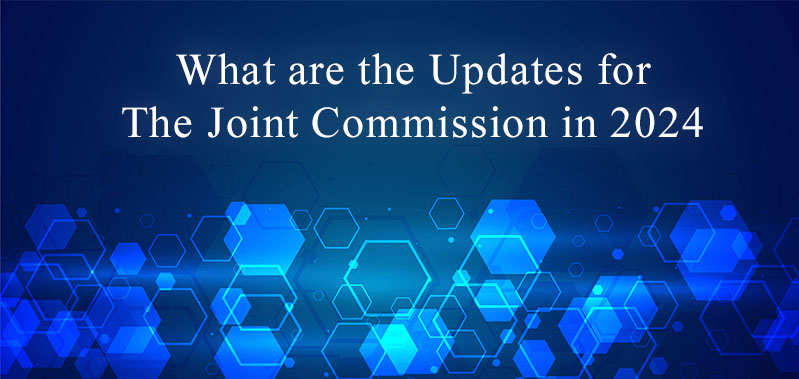
What are the Updates for The Joint Commission in 2024
In the ever-evolving landscape of healthcare quality assurance, one organization stands at the forefront of ensuring excellence in patient care that is the Joint Commission. With its latest announcement of cutting over 200 standards across its accreditation programs, The Joint Commission will revolutionize the way healthcare facilities operate, aiming for greater efficiency without compromising on quality. The Joint Commission is a group in the United States that helps hospitals and other healthcare places do their best work. They make rules and set standards about how hospitals should care for patients, ensure medicines are safe, stop infections, and protect patients' rights.
Most states say hospitals must get approval from the Joint Commission to work and get paid by Medicaid. Also, if hospitals get approved by the Joint Commission, they can join the Medicare program run by the government. If hospitals don't get checked by the Joint Commission, they can get checked by the government instead. The Joint Commission checks over 20,500 healthcare places in America. They visit every few years to see if the place is still doing well. Labs get checked every two years. When the Joint Commission visits, they look at how safe patients are and whether the care is quality. Hospitals also get a surprise checkup within a few years after the big check.
The Joint Commission ensures that hospitals follow good rules to keep patients safe and provide good care. They listen to patients, doctors, and government feedback to make these rules. Before they make new rules, they ask for people's opinions and then post them on their website for everyone to see.
This bold move comes as the culmination of a strategic plan initiated in July 2023, signaling the second phase of significant standards reduction. Dr. Jonathan Perlin, the President and CEO of The Joint Commission, summarized the sentiment of healthcare leaders and providers alike when he stated that fewer standards would pave the way for more meaningful ones. This sentiment underscores a shift towards a leaner, more focused approach to accreditation, where standards are not just checkboxes but essential pillars supporting the delivery of exceptional care.
Among the notable changes set to take effect from July 1, 2024, are significant reductions in standards across various domains. Emergency management and ambulatory care, for instance, will witness a 40% decrease in the number of performance elements. Eliminating redundant requirements and adding new elements aimed at enhancing hazard vulnerability analysis and staff education reflects a commitment to aligning standards with evolving best practices.
Similarly, infection control standards will undergo a 70% reduction in performance elements, with a renewed focus on preparedness for high-consequence infectious diseases. By aligning these standards more closely with legal and regulatory frameworks, The Joint Commission aims to empower healthcare organizations in their mission to combat contagious threats effectively.
The Joint Commission has outlined plans for further streamlining across various healthcare sectors. Ambulatory health care, behavioral health care, critical access hospitals, laboratories, nursing care centers, office-based surgeries, and home care will all have to undergo reductions in performance elements ranging from 9% to 28%. These reductions are not arbitrary; they represent a concerted effort to refine standards, ensuring they remain relevant and actionable in today's healthcare landscape.
Central to this initiative is the recognition that quality assurance should facilitate, not hinder, the delivery of exceptional patient care. The Joint Commission aims to empower healthcare providers to focus their efforts where they matter most: on patient outcomes by eliminating redundancies and aligning standards with evolving best practices and regulatory requirements.
However, it's essential to acknowledge that change of this magnitude does not occur in isolation. It requires collaboration, adaptation, and a commitment to continuous improvement from all stakeholders within the healthcare ecosystem. Healthcare leaders, frontline providers, policymakers, and accrediting bodies must work hand in hand to navigate these changes successfully, ensuring that the integrity of patient care remains paramount throughout the transition.
In conclusion, The Joint Commission's standards reduction initiative represents a pivotal moment in the evolution of healthcare quality assurance. By streamlining standards across accreditation programs, The Joint Commission is not just redefining excellence; it's reimagining it. As healthcare organizations adapt to these changes, they can embrace a more focused, efficient approach to delivering care, ultimately advancing the collective goal of better health outcomes for all.





